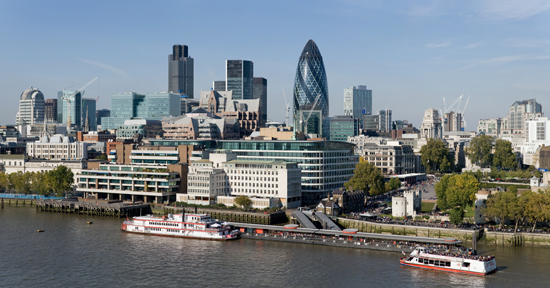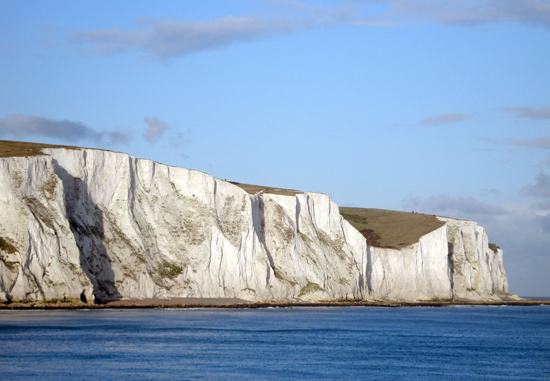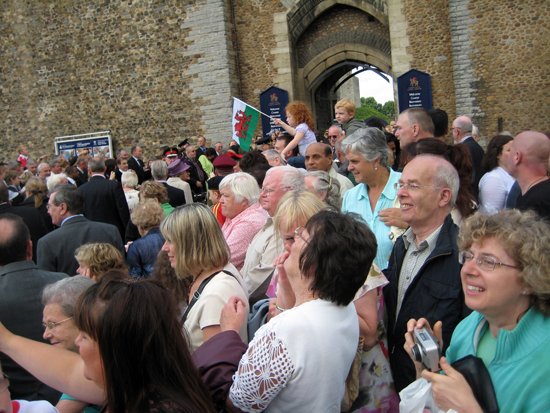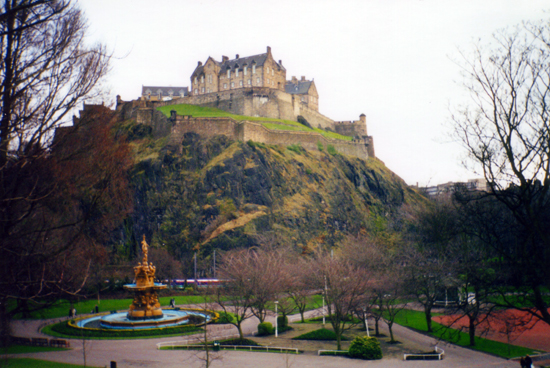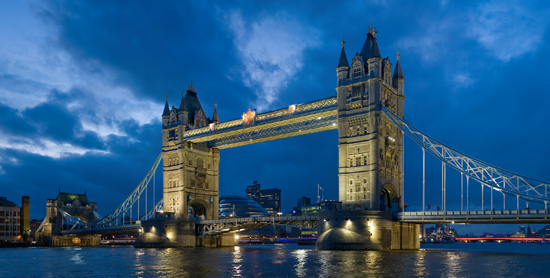Country Snapshot: Country Snapshot
Land/Geography/Regions
The United Kingdom (UK) is an island country off the northwestern coast of continental Europe. The UK includes Great Britain—the largest island and where England is located—as well as Wales, Scotland, and Northern Ireland. Northern Ireland shares a land border with the Republic of Ireland. The UK includes several archipelagoes, including the Isles of Scilly, the Isle of Wight, and the northern region's Orkney, Shetland, and Hebridean islands.
The UK has an extensive coastline, with England largely a series of flat plains with some highlands in the west. A number of rivers cross the country, including the Thames, Severn, and Humber, all of which provide important ports including the capital city of London. Scotland and Wales are mountainous regions with rugged landscapes and Scotland's territory includes Ben Nevis, the highest point in the UK at 1,343 meters (4,406 feet). A prominent geological fault line divides Scotland in two, with the highest points and more than 800 islands located in the northern part. Northern Ireland, the smallest part of the UK, is composed of rolling hills, with Lough Neagh in the center of the country the UK’s largest lake.
People and Culture
Most of the UK's population is white European, and the majority are English followed by small groups of Scottish, Welsh, and Northern Irish. Small communities of ethnic minorities draw from the various colonies administered by the historic empire and include black African and Caribbean peoples, as well as Indian, Pakistani, and Bangladeshi immigrants.
English is the official language. Welsh is spoken by nearly a quarter of the population in Wales. Irish or Scottish Gaelic are also spoken by some Scots and Irish, as well as people in the English county of Cornwall. Christianity is the country’s dominant religion, with nearly three-quarters of the population following one of the Anglican, Roman Catholic, Presbyterian, or Methodist faiths. Islam, Hinduism, Sikhism, Judaism, and Buddhism are also practiced, largely by immigrant communities.
History
Sites such as Stonehenge, which is dated to 2500 BCE, indicate that the UK has a long history of habitation by hunter-gatherer tribes and later Iron and Bronze Age societies. The early history of the country features a number of invasions from Vikings, Romans, and in 1066, the Normans, who imposed a Norman-French culture on the country. Referred to as William the Conqueror, the Duke of Normandy is credited with shaping much of England’s medieval history. The many historic conflicts and rivalry between England and France have their origins in his rule and organization of his English and French territories.
Scotland and Wales remained independent countries often at war with England. It was not until 1707 that a political union was achieved and a new kingdom established. Ireland joined the union in 1801. Throughout this time, the country became a great sea power with an expanding number of overseas territories under its administration. At its height in the 17th century, Britain was the world’s most significant world power and became the largest empire in world history. The empire was fueled by the industrial revolution that originated in the English Midlands, where iron was first smelted. This industry brought great wealth to the country.
The UK was left financially damaged after World Wars I and II, when it was one of the three main Allies fighting Nazi Germany. The country took a lead role in postwar global reconstruction. UK society was fundamentally changed by the postwar government, which implemented a welfare state system and adopted a policy of decolonization. Within three decades virtually the entire empire had become independent. The country became a member of the European Union (EU) but refused to adopt the euro and saw its once huge global influence massively reduced.
A global recession in the early 21st century and waves of immigration stoked resentment over the UK's diminished autonomy. In 2016 the "Brexit" referendum passed, in which UK voters elected to withdraw from the European Union. The withdrawal took effect on January 31, 2020.
Climate and Biodiversity
The climate of the UK is variable due to the convergence between moist maritime air and dry continental air. This results in both daily and seasonal variations, with conditions often rainy, cool, and cloudy. Extreme conditions are rare in the UK, and mild winters are followed by warm summers. Northern Ireland and Scotland are the wettest and coldest parts of the UK, while southern and eastern England are the driest and warmest areas.
The flora and fauna of the islands are diverse though have been impacted by human factors including the clearing of forests. Common trees remaining throughout the UK include oak, elm, ash, beech, and pine, with many grasses and flowering plants also common. Large mammals include wolf, bear, boar, and reindeer, with red and roe deer protected species. Wildcats are believed to be the region’s rarest species. The region is along a migratory route for about 200 bird species, while salmon, trout, perch, and pike thrive in the region’s lakes and rivers. Additionally, coastal waters see minke and humpback whales, bottlenose dolphins, grey seals, and basking sharks, the largest fish in British waters.
Economy
The UK has a mixed market-based capitalist economy and uses the pound sterling as its national currency. The economy is heavily reliant on the services sector, particularly banking, insurance, and business services. The financial sector is also important, as London is the largest financial center in the world. Principle material exports include machinery, electronics, and cars while cultural exports include film, television, and popular music.
The UK trades within the EU, as well as with trans-Atlantic allies like the United States. Healthcare is nationalized and under government control.
Government
The UK is a constitutional monarchy governed by a parliamentary democracy. It has legislative, executive, and judicial branches, with the reigning king or queen serving as a ceremonial head of state though without any significant political power. The head of the government is the prime minister, the leader of the majority political party elected to the House of Commons. Parliament is comprised of the monarch, the House of Lords, and the elected House of Commons. The highest court in the UK is the supreme court, having 12 justices appointed through recommendation to life terms.
Within the UK, power has been transferred to national assemblies in Scotland, Wales, and Northern Ireland. Local governments across the UK have relatively little legislative power but are responsible for a range of constituent services including education, road infrastructure, firefighting, sanitation, and some social services.
Article written for World Trade Press by Paul Giess and Carina Saxon.
Copyright © 1993—2024 World Trade Press. All rights reserved.

 United Kingdom
United Kingdom 